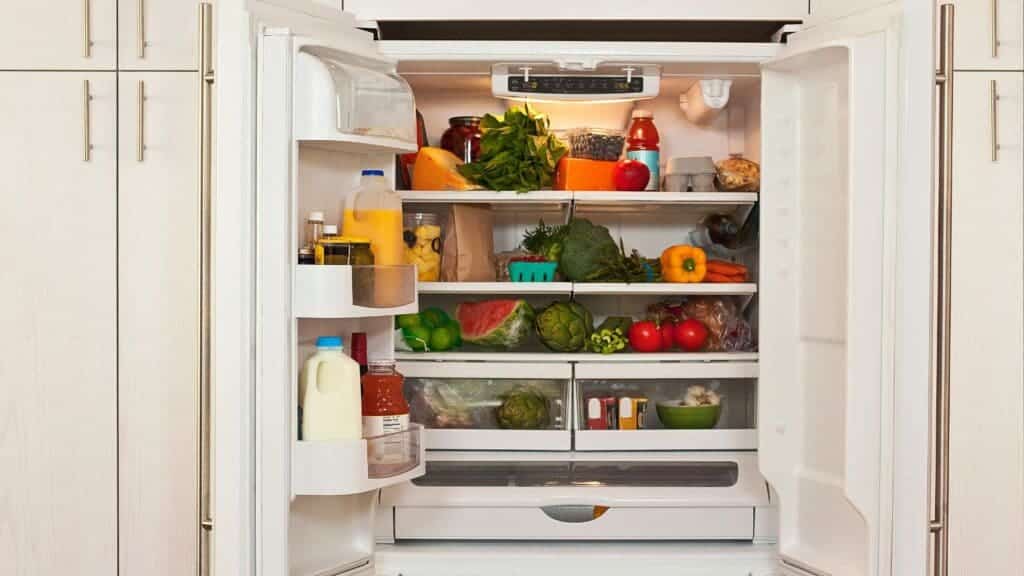Table of Contents
The importance of refrigerators in the present times is undeniable. They provide ultimate convenience by keeping our food and beverages fresh and cool. However, these machines sometimes become troublesome due to the damage or malfunctioning of any of their components. One such issue is a refrigerator leaking water inside. This problem makes a mess and may result in food spoilage, possible water damage, and higher energy consumption. Identifying the cause of your refrigerator’s interior water leak is critical to preserving the efficiency and lifetime of this essential appliance.
Refrigerator leakage inside, water collecting at the bottom of the refrigerator, or water dripping within the refrigerator are common problems. This problem may result from various issues, including an obstruction in the defrost drain, a malfunctioning water filter, broken door seals, or incorrect appliance leveling. By immediately identifying and taking care of these issues, you can stop minor inconveniences from turning into expensive repairs.
This article will examine the common reasons for refrigerators leaking water inside, providing professional advice and preventative measures to keep your refrigerator operating at its best. Whether the issue is with a refrigerator leaking water from the freezer or a freezer dripping water inside, knowing this information will help you solve the problem and maintain a smooth kitchen. All these issues can easily be resolved by first identifying the issues and then rectifying those issues.
Common Causes of Water Leaking Inside a Refrigerator 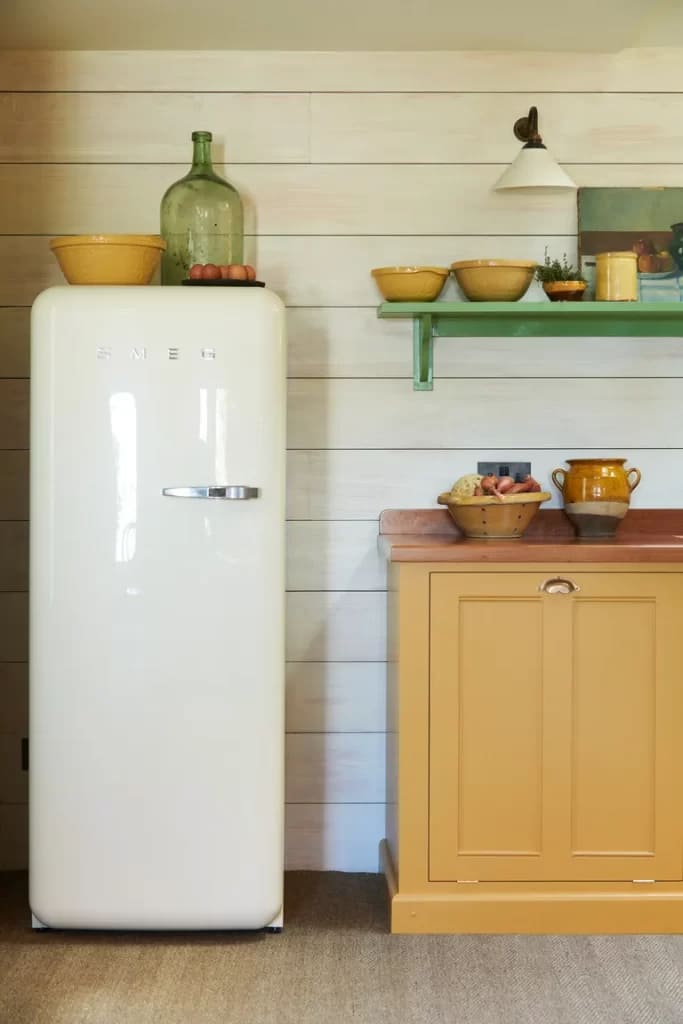
1. Frozen or clogged defrosting drain
A frozen or clogged defrost drain is one of the most common causes why refrigerator is leaking water inside. The defrost drain can release water generated during the defrost cycle from the freezer compartment. The refrigerator will drip water if the drain is clogged with food particles, ice, or other debris. To resolve this problem, find the defrost drain hole behind the freezer. To clear the drain, use an iron skillet filled with hot water or a pipe cleaner to remove the blockage gently. If the obstruction is difficult to remove, try clearing the deposit using warm water and baking soda.
2. Faulty Water Filter
Water leaks within refrigerators can occur from blocked water filters or installation errors. A blocked filter can cause water to overflow and spill into the refrigerator compartments.
Solution
To resolve this issue, regularly inspect and replace the water filter in your refrigerator. Make sure the filter has been installed correctly to stop leaks. Many manufacturers advise changing the water filter every six months, but this can vary depending on usage and water quality.
Apart from the leaking issue, several other issues are associated with the refrigerator. Refrigerator-freezing food is a regular problem for many households, resulting in frustration and food waste. Fortunately, you can take a few easy solutions and precautions to ensure your refrigerator keeps your food at the right temperature without freezing it.
3. Damaged Door Seals
Warm air can enter a refrigerator due to damaged or broken door seals (gaskets), resulting in condensation and water dripping within the appliance. This problem frequently leads to an accumulation of excessive moisture that the refrigerator needs to handle adequately.
Solution
Check for damage or cracks in the door seals. Wash them in warm, soapy water to ensure a tight fit and replace any damaged seals. Keeping the door seals free of dirt and food residue can also enhance their effectiveness.
4. Improper Refrigerator Leveling
Your refrigerator’s uneven leveling may result in water accumulating and seeping inside. The appliance should be slightly inclined backward to ensure proper coolant and defrost water flow.
Solution
Verify the refrigerator’s alignment using a spirit level. Adjust the front leveling legs, and ensure the refrigerator is slightly tipped backward. This ensures that the door closes correctly and helps with drainage.
5. Overstuffed Refrigerator or Freezer
A refrigerator or freezer that is too full can block the vents and restrict the flow of air. Condensation accumulating in the refrigerator may cause uneven cooling and water in the refrigerator.
Solution
Therefore, Don’t overstock your freezer and refrigerator. Make sure there is enough room for air to flow freely. To maintain proper ventilation, try to keep objects organized and keep away from blocking the vents.
6. Malfunctioning Water Inlet Valve
The refrigerator’s water inlet valve controls the water entering it. The valve may be faulty or have a loose connection, resulting in the fridge leaking water.
Solution
Look at the connections and water inlet valve. If you find any leaks or malfunctions, they may need to be replaced or tightened.
Factors Contributing to Water Leaks
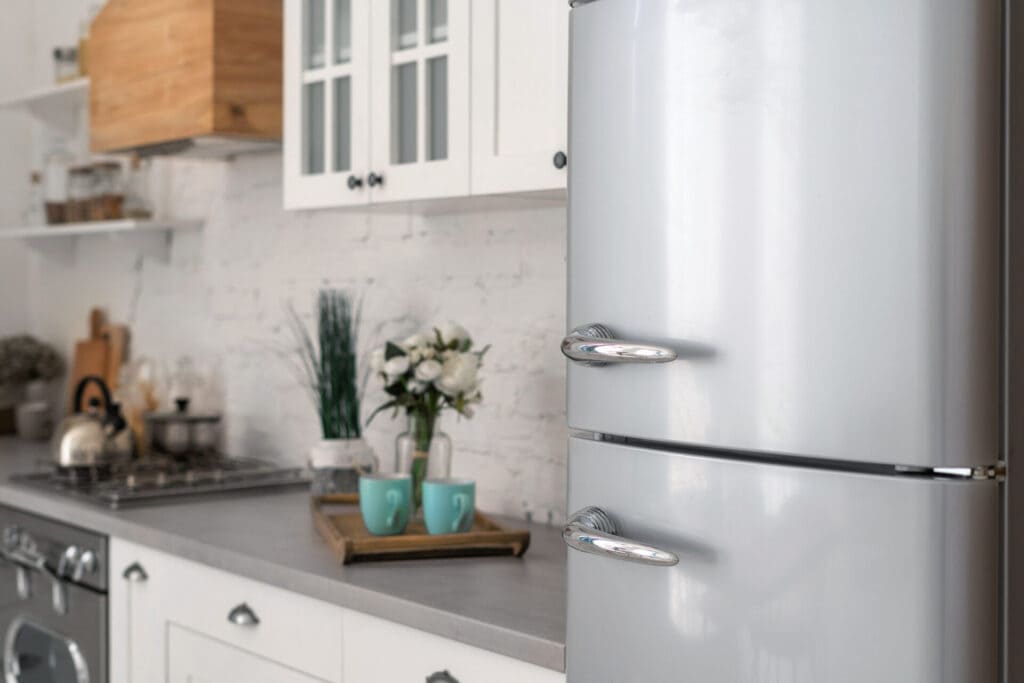
1. Variations in Humidity and Temperature
Excessive condensation can result from changes in temperature and high humidity, which could cause water to leak inside the refrigerator. This is frequently evident when it’s hot and wet outside.
Solution
To regulate humidity levels in your kitchen, consider installing a dehumidifier. To keep the refrigerator’s inside temperature constant, also try not to open it frequently. A further useful suggestion is to keep the refrigerator in a well-ventilated place.
2. Blocked Drain Pan
Water that melts during the defrost cycle is collected in the drain pan. The refrigerator may leak water if the drain pans overflow due to damage or blockage.
Solution
The drain pan at the bottom of the refrigerator should be periodically checked and cleaned. Make sure it is intact. If you find any problems, replace the drain pan to stop leaks.
3. Malfunctioning Defrost Thermostat
When a faulty defrost thermostat hinders the defrost procedure, ice might accumulate and eventually melt, leading to refrigerator leaking water inside. If you feel the thermostat is faulty, it is preferable to contact an expert technician to identify and replace it.
Solution
The defrost system should be checked frequently to help identify problems early. To troubleshoot a defrost thermostat effectively, start by using a multimeter to test the thermostat’s continuity.
4. A condensation drain leak
The refrigerator’s condensation drain removes extra moisture. If it breaks or becomes blocked, water can leak into the refrigerator. Check for damage or blockages in the condensate drain. Please clean it routinely to ensure it works correctly. A vinegar and warm water mixture can prevent mold growth and keep the drain clear.
Understanding Water Leaks in the Freezer
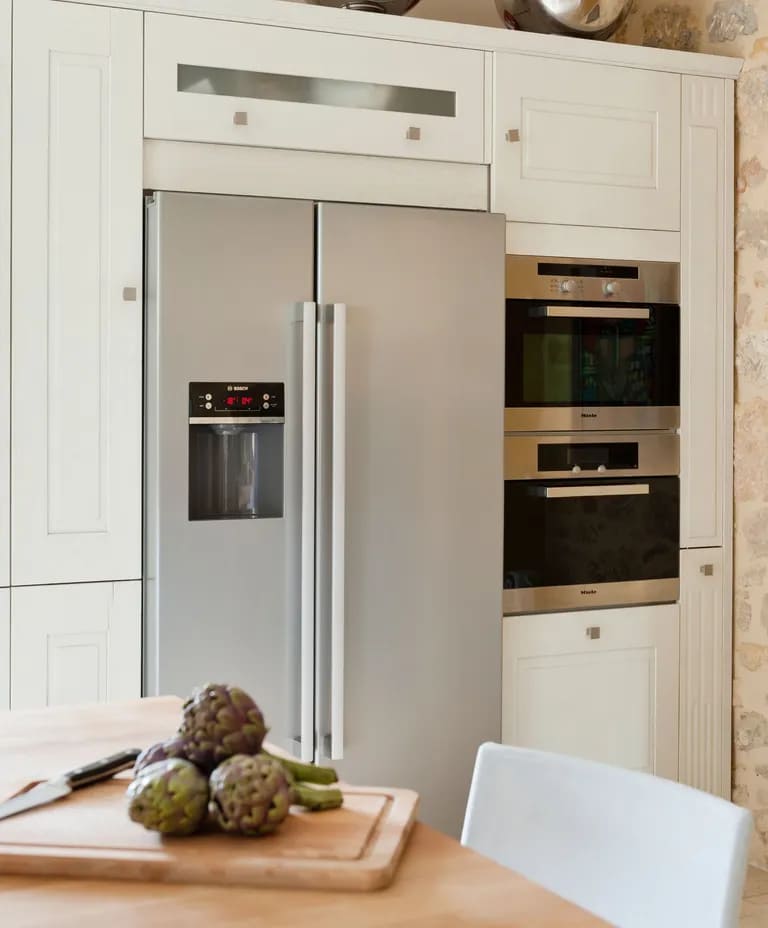
1. Defrost Drain Issues in Freezer
Water leaking from the freezer can also result from a blocked or clogged defrost drain, like in the refrigerator section. Improper water drainage will eventually cause water seepage into the refrigerator compartment below.
Solution
Use a pipe cleaner or hot water to clear blockages in the freezer’s defrost drain. Make sure you do this regularly to prevent clogs in the future.
2. Ice Maker Problems
Problems with the ice maker’s water supply line or connectors can cause the freezer to leak into the refrigerator if it has any. If the water line is damaged or the connections are loose, leaks may happen.
Solution
Examine the ice maker’s connections and water supply line. Replace any broken water lines and tighten any loose connections. Leaks can be avoided by giving the ice maker regular maintenance, which includes cleaning it and checking it for wear and tear.
3. Faulty Door Seals in the Freezer
Like the refrigerator portion, the freezer’s door seals can crack over time, allowing warm air to enter and creating condensation and water leaks inside the unit.
Solution
Clean and check the freezer door seals regularly. To ensure an appropriate seal, replace damaged seals to maintain flexibility and enhance their sealing qualities. Consider rubbing a little petroleum jelly onto them.
4. Incorrect Temperature Settings
When frost accumulates and melts due to improper freezer temperature settings, freezer starts leaking water inside
Solution
Verify that the freezer is set to the recommended temperature indicated by the manufacturer, typically 0°F (-18°C). Lowering the temperature too much can result in an excessive accumulation of ice.
Preventative Measures to Avoid Water Leaks
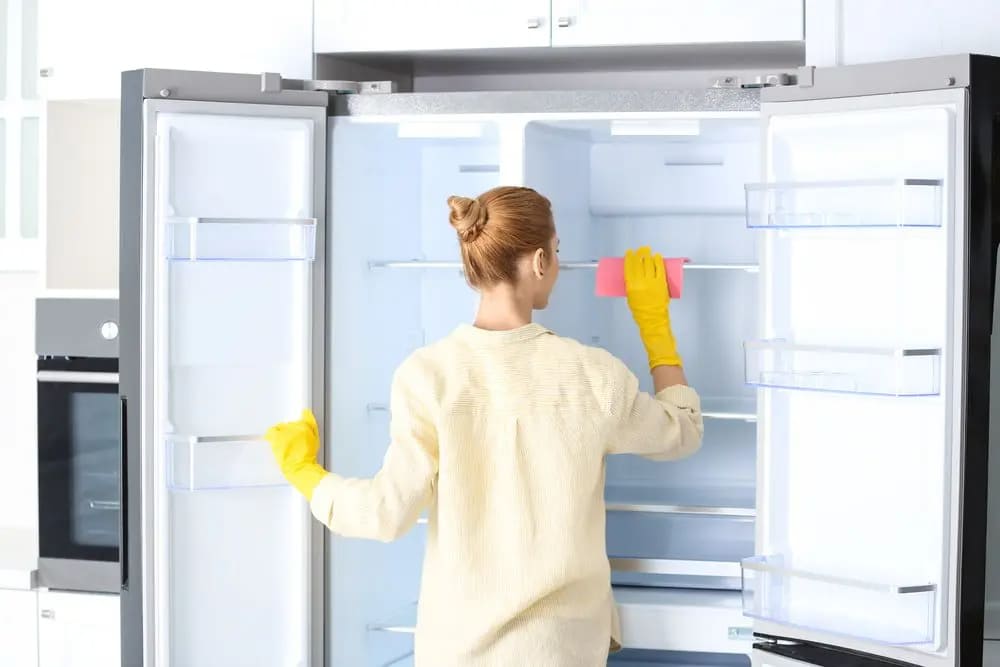
Regular Maintenance
Preventing water leaks within the refrigerator requires routine maintenance. This involves checking and cleaning the defrost drain, changing the water filters, examining the door seals, and ensuring the appliance is leveled correctly.
Monitor Usage and Loading
Water leaks could occur from how you use and fill your refrigerator, affecting its efficiency. Avoid overloading the fridge and freezer, and ensure proper air circulation. Arrange the items in your freezer and refrigerator to provide enough airflow. Avoid overfilling and avoid blocking vents.
Address Issues Promptly
Ignoring minor problems may cause more significant issues, including potential water damage.
Check your freezer and refrigerator regularly for leaks, unusual sounds, or malfunctions. By responding early, you can save on expensive repairs.
Maintain the Refrigerator’s Cleanliness
Problems are less likely to arise in a clean refrigerator. To keep food particles, mildew, and mold from creating issues, clean the interior regularly, paying particular attention to the shelves, drawers, and seals
To clean the interior of your refrigerator, use warm water and a little detergent. Attention should be given to the corners and seals where dirt can accumulate. Maintaining a clean refrigerator can increase its effectiveness and reduce the chance of leaks.
Professional Inspections
If you are unsure of your capability to identify issues or perform maintenance activities, consider arranging for professional inspections. Professionals can conduct comprehensive inspections and take care of problems that homeowners might not notice.
Plan to have your freezer and refrigerator professionally maintained once a year. This will ensure your appliances are running as efficiently as possible and help them last longer.
Conclusion
A blocked defrost drain, a malfunctioning water filter, broken door seals, incorrect leveling, and overstuffing are just a few of the problems that can cause a refrigerator to leak water inside. In contrast, difficulties with the ice maker, door seals, and defrost drain can also lead to a freezer leaking water. Avoiding and resolving water leaks in your freezer and refrigerator is possible by being mindful of these typical reasons and following professional maintenance guidelines.
By taking care of your refrigerator and freezer, monitoring their usage, and quickly resolving any problems, you can ensure smooth operation and prevent the inconvenience and potential damage caused by water leaks. If problems continue, don’t be uncomfortable seeking professional help to identify and resolve any underlying problems.
Remember that routine maintenance can help keep your appliances in good working order and save you the stress of dealing with a leaky freezer or refrigerator. Effective problem-solving and routine maintenance can help you avoid unexpected repairs and save time and money.
